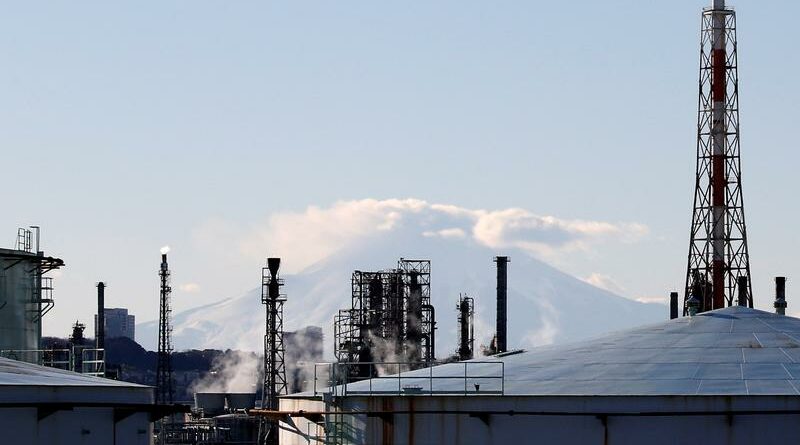Japan's Feb machinery orders fall for second month, adding to growth fears
TOKYO (Reuters) – Japan’s core machinery orders posted their biggest monthly fall in nearly two years in February, official data showed on Wednesday, dragged down by a steep drop in demand from IT and other service firms to extend their decline into a second month.
The data added to concerns that Japanese firms are holding off on investments amid a profit squeeze from rising energy and raw materials costs, fuelling worries about the pace of economic growth as the world’s third-largest economy tries to recover to pre-pandemic levels.
Core machinery orders, a highly volatile leading indicator of capital spending in the coming six to nine months, fell 9.8% in February from the previous month, the Cabinet Office data showed on Wednesday.
The fall was the biggest since April 2020 and far larger than a drop of 1.5% forecast by economists in a Reuters poll and a 2.0% decrease in January.
Core orders from non-manufacturers excluding ships and electrical utilities fell 14.4% in February, led by a 36.9% fall in orders from information service firms, the biggest drop since January 2006.
“The information service sector has been aggressive in buying computers for IT systems and data centre facilities since last October, and the movement appears to have stalled,” a government official told a media briefing.
Orders from manufacturers fell 1.8%, hurt by soft demand from chemicals and other material industries. Orders from electric machinery firms grew 13.8% as they ramped up investments in semiconductor-making equipment.
The government on Wednesday downgraded its assessment of machinery orders, saying the recovery was stalling.
In a year-on-year basis, core orders rose 4.3% in February, the data showed, much weaker than a 14.5% rise expected by economists.
Rattled by supply disruptions and soaring production costs, Japanese business confidence worsened in the first quarter for the first time in nearly two years, a Bank of Japan survey showed this month.
Managers of major Japanese firms expected the near-term recovery outlook to stay modest at best, on uncertainties such as the Ukraine crisis and its impact on commodity inflation, a Reuters poll showed on Wednesday.
Economists have cut projections for Japan’s growth, in view of the heightening inflationary pressures on households and businesses.
Source: Read Full Article


